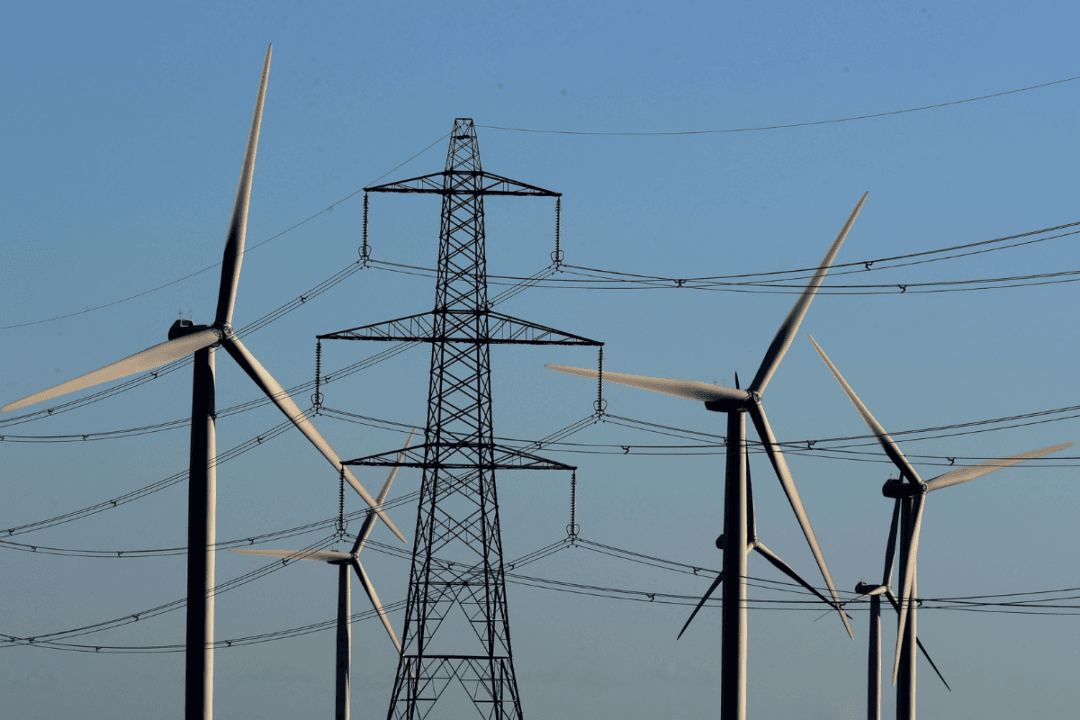MPs have raised concerns that erecting pylons across farmland as part of National Grid upgrades for net zero could impact food security.
Matt Warman told MPs in Westminster Hall on Thursday that his constituents were worried about how plans to connect offshore renewable energy farms to a new electricity transmission line would impact the area, noting that “Lincolnshire is one of the most productive parts of our agricultural economy.”
The Conservative MP for Boston and Skegness said that even if there were the possibility of running the cables underground so that “we can go back to fully productive land,” it would be “a project for a number of years and the land is never, as any farmer will tell us, quite the same again.”
“The approach that National Grid is taking, set by government, does not consider food security in that way. It does not consider the economic impact of what is being proposed,” Mr. Warman said, stating that “constituents are angry when they see food security ignored.”
“They do not deny that there is a real need to upgrade the grid for the future, but they want to see value for money for taxpayers, landscapes not unnecessarily blighted, and an approach that acknowledges that the economic impact and the impact on food security should be the government’s coherent and top priority,” he said.
Fellow Conservatives Virginia Crosbie, the MP for Ynys Mon, and James Wild, the MP for North West Norfolk, both shared that their constituents were notably concerned about how turning over farmland for National Grid pylons would impact food security.
Solar Panel Farms
Similar concerns were raised during a debate in the House of Commons chamber in February, relating to agricultural land being used for pylons as well as for solar panel farms.Responding, minister for energy security and net zero Graham Stuart said at the time that while he could not comment on specific proposals, “we need to rewire this country in order to have homegrown energy. That means hosting new infrastructure, with the presumption that it is above ground and done in a way that minimises negative impacts on food security, which I am confident that any proposals that come forward will do.”
The Climate Change Act 2008 target to be net zero in greenhouse gas emissions by 2050 requires significant increases in low carbon electricity generating infrastructure. As a result, the government has set a target relating to the development of offshore solar and wind energy and nuclear power, as well as aiming to fully decarbonise the electricity grid by 2035. This—along with green policies to increase the uptake of electric cars and heat pumps—is expected to lead to a doubling of electricity demand by 2050.
National Grid carried out a review of the grid requirements needed to deliver the increase in green energy generation and recommended a single, integrated network connecting new offshore farms and transmission networks.
‘We Need to Protect Our Prime Agricultural Land’
In January, Welsh farmer, presenter, and commentator Gareth Wyn Jones told The Epoch Times that the UK needs to preserve its farmland.Mr. Wyn Jones said: “We need to protect our prime agricultural land for producing food. But government policies are pushing for solar panel farms, wind turbines, planting trees, taking away our opportunity to grow food in this country.”
“We should be putting solar panels onto the roofs of all the industrial sheds, and onto private households as well. And grant-funding them, helping them, making sure we’re more energy sufficient and more self-sufficient in food, energy, and everything that is so important going forward because we need a farming food revolution in this country,” he added.







